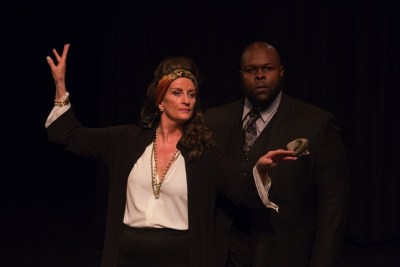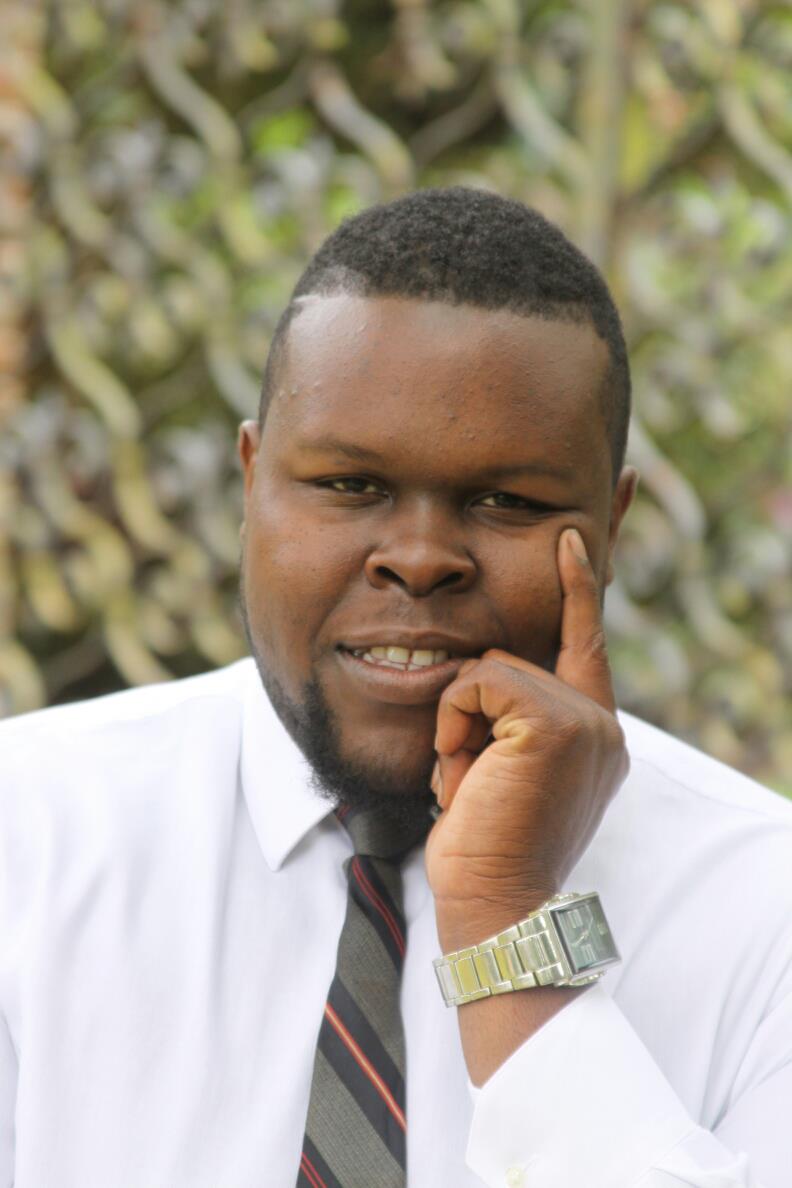June 15, 2018 - by Colin MacLean, from Gig City
The aura of Maria Callas stills hovers over opera in the last half of the 20th Century.
She was “La Davina” – plain in person but beautiful on stage. Her acting may have been minimal but she dominated every production in which she appeared. Famous for her wobbling high notes, she seldom performed (especially in New York) without being greeted by boos. The unforgiving press continuously savaged her while Callas brought a whole new audience to opera – through a commanding and elegant presence and a clarity of character and delivery. She invigorated the art form with a freshness not seen for a century. Her fans adored her.
She lived hard, loved fast (and often) and died young. Callas sang herself out in just 12 years (1953 to 1965) and died in 1977 at the age of 53.
In the 1970s, near the end of her life, she gave a series of master classes at Julliard. In 1995, Terence McNally (something of a master himself) wrote a tribute to the star in a fictional version of the sessions. The result, called Master Class, is now in production at La Cite Francophone until June 17 as part of the Spring Festival from Edmonton’s feisty Opera NUOVA’s opera training program.
McNally’s play, some of which is loosely based on transcripts from the actual lectures – and the rest exhaustively researched, stars Judith Hawking as the imperious diva. She enters the hall in which she is to present a lecture on singing, art and life in general – but the prima donna delivers a lot more. She weaves a complex tapestry of glory, triumph and pain pulled from recollections of her own life. We learn of her ugly-duckling childhood, poor self-image, her first triumph at La Scala, her fierce hatred of her rivals and (in some detail) her headline grabbing on-again-off-again relationship with the course, foul-mouthed, Greek shipping magnate Aristotle Onassis.
In Kelly Handerek’s riveting production, Callas’s raw personal observations are counterpointed by actual recordings of the star as she soared at the height of her powers. Here is a daunting woman who is larger than life, understands her own powers and takes no prisoners. The musical play can be regarded as a penetrating study of the demands of genius, the striving for excellence, and the artist’s place in society. It may be a tale we’ve heard before – but Callas lived it like no other.
Three nervous newby opera singers (called “victims” by the star) dragooned to sing for her are in for a rough ride. Callas makes no allowances for youth and inexperience. Domineering, impatient and exacting, she witheringly skewers them – even resorting to vulgarity when needed.
“An aria without a cabaletta is like sex without an orgasm,” she says.
Woe betide the tenor who observes, “I want to be an artist,” or the aspiring mezzo who blurts out, “I’m not an actress. I’m just a singer.” One tenuous victim dresses for the occasion and is greeted with the caustic, “Are you going somewhere after this?”
Hawking is a graduate from the U of A and has recently been pursuing a successful career in New York. Intrigued by the challenges of the role, she has returned here for one time only. Good choice for Opera NUOVA. There was only one Callas, but we see in Hawking’s portrait a compendium of the forces that drove her. Her imperishable liquid Greek-Italian accent and impeccable diction echo Callas’ own.
It’s a difficult role because the playwright skirts caricature, and you may find it easy to dislike the self-involved star who savages all around her. But it is to Hawking’s actorly credit that she lifts the curtain just enough to demonstrate how Callas’ attitudes were probably driven by her hardscrabble early years. This superb actor projects Callas’ harsh and intolerant side but also the frail and funny one. She finds a sly humour in making the most of her interactions with the audience, standing in as students in the Julliard class – which allows the actress to deliver many of her character’s most telling observations directly to us. She can be quite kittenish – except when the claws come out. At the end, this outstanding performer delivers a wrenching monologue on how she threw away a lifetime of building impenetrable walls of emotional protection around herself by falling for Onassis only to have him demand an abortion and then turn away from her. (He went on to marry Jacqueline Kennedy.)
Hawking is also able to fire the occasional pointed comic barb with the aplomb of a Don Rickles.
When the performers get to sing their arias they rise to the occasion with thrilling deliveries. Soprano Sydney Clarke gets as far as the first note and is cut off.
“What’s the use of going on when everything you’ve done so far is so wrong?!” roars Callas.
Between the barbs, tenor Tshombe Selby manages to unleash a great big voice singing Cavaradossi’s opening aria from Tosca. Soprano II (Meaghan Fletcher), unable to withstand the vitriol hurled her way, retires to the loo to puke her guts out. But apparently opera singers are made of sterner stuff – she returns to the class to deliver a killer aria from Verdi’s Macbeth with a powerful mezzo that speaks of a brilliant career in store for the young lady. (A very young Audra McDonald won a Tony for the role in 1995.) All three singers acquit themselves well as the quaking “victims.”
All are accompanied at the piano by Zain Solinski, who plays a shy fellow who becomes drolly aware of the difficulties of working with a difficult demigod.
Henderek’s rich production is full of comedy and pathos and powered by Callas’ unique power and passion. It bears a lesson for anyone striving for excellence – or, perhaps, just a solid evening of dramatic entertainment.
A haunting portrait of a lioness in Winter, Master Class will be seen three more times – June 15th and 17th with a matinee on June 16. In the meantime, other vocally-oriented entertainments will be presented by Opera NUOVA in various venues throughout the rest of the month.
Photos by Nanc Price

